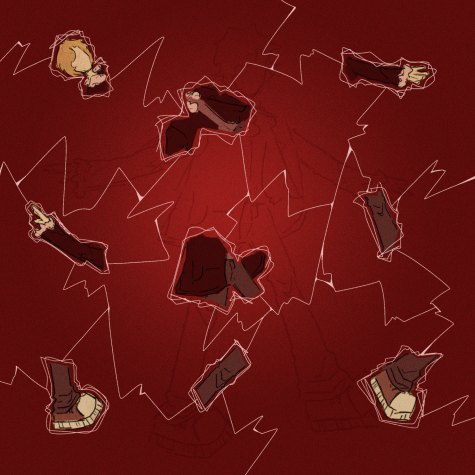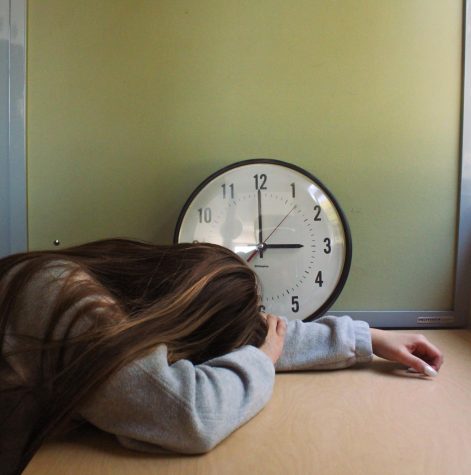Obtainable and addictive
As illicit drug use increases on Lowell’s campus, some students find themselves reliant on substances and unable to receive help from school.

Veronica, a sophomore under a pseudonym, stood inside the handicap bathroom stall, waiting nervously. It was her first time buying drugs on campus. As she stood waiting, her eyes drilled into the door when she suddenly heard footsteps approaching. Soon enough, the door swung open and her friend walked in. She saw the plastic bag containing a vape and cigarettes and quickly took it from her, tucking it away and out of sight. Veronica pressed crumpled up bills into her hand, before leaving the bathroom within a couple seconds. That was easy, she thought.
Veronica is not alone in her experience.
Illicit drug use by students has been a continuous issue at high schools across the country, including Lowell. However, interviews with a number of students and a poll conducted by The Lowell suggests drugs are relatively easy to obtain on campus and that a number of students are using them. In some cases, this includes the use of hard drugs. This has led to increasingly detrimental effects on both Lowell students who abuse drugs, and students who don’t as well. Although Lowell has policies in place aiming to combat the issue, students believe that these efforts aren’t enough to support those who use illicit drugs.
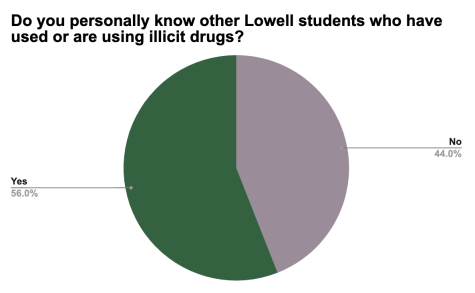
Many students are aware of the prevalence of drug use on campus. In a January 2023 survey conducted by The Lowell of 20 randomly selected registries, 44 percent of respondents reported directly witnessing Lowell students using illegal drugs on campus, and 56 percent of respondents said that they knew at least one Lowell student who has used or is using illicit drugs. These statistics are backed by the Lowell administration, including Isaac Alcantar, one of Lowell’s assistant principals, who believes that vaping and other forms of smoking is an expected issue among high school students.
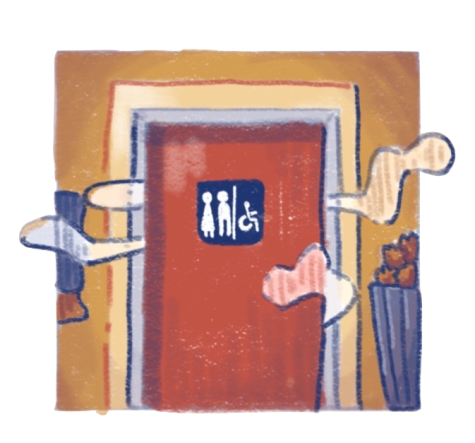
For many, the student bathrooms are the primary hotspot for smoking and drug use, with smoking in particular being the most prevalent. With the rise of e-cigarettes and vapes, many students use these bathrooms for smoking throughout the day. Emily, a junior under a pseudonym, likes to leave class to vape in different bathrooms across the campus. Before Emily leaves for the bathrooms, she texts some of her friends. They discuss what flavor vapes everyone has, if anyone has marijuana, and if anyone is available to come share their goods with her. “I will text a couple friends and ask them to meet in the bathroom, and then we all bring our stuff, and then kind of just vape,” she said. If nobody is willing to come meet Emily, she’ll just smoke by herself.
Because illicit drug use by high schoolers typically includes nicotine and marijuana, the abuse of more dangerous drugs on campus has gone largely unnoticed. Veronica was alarmed after hearing about Lowell students abusing what she called “harder” drugs, including hallucinogens like ketamine. “You don’t imagine high schoolers using [these drugs],” she said.
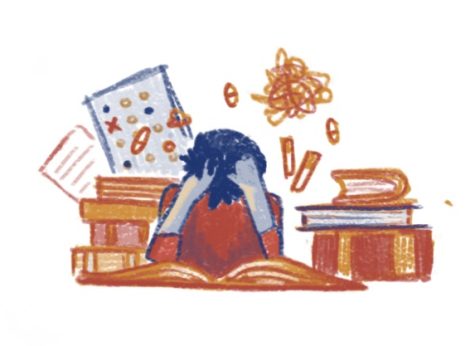 Adderall is one example of a drug only prescribed for medical purposes that some Lowell students are using illegally. Anna, a senior at Lowell under a pseudonym, sells extra pills that she receives through her medical prescription for her ADHD. “People generally take it if they want to really focus or really study,” she said. “Finals week, SAT tests, AP tests, things like that; it’s performance-enhancing drugs for academics.” This proved apparent for Ryan, a senior at Lowell under a pseudonym, who tried Adderall during his junior year after hearing from friends that it helped students focus. “I tried ‘study drugs’ because a lot of my friends were,” he said.
Adderall is one example of a drug only prescribed for medical purposes that some Lowell students are using illegally. Anna, a senior at Lowell under a pseudonym, sells extra pills that she receives through her medical prescription for her ADHD. “People generally take it if they want to really focus or really study,” she said. “Finals week, SAT tests, AP tests, things like that; it’s performance-enhancing drugs for academics.” This proved apparent for Ryan, a senior at Lowell under a pseudonym, who tried Adderall during his junior year after hearing from friends that it helped students focus. “I tried ‘study drugs’ because a lot of my friends were,” he said.
While Lowell’s administration is aware of a certain level of substance abuse on campus, there hasn’t been any awareness of more harmful substances that surveyed students have reported using, including ketamine, Adderall, and cocaine. “[Harder drugs] haven’t come onto our radar,” Alcantar said. “I think right now the biggest challenge we have is the vaping type of materials.”
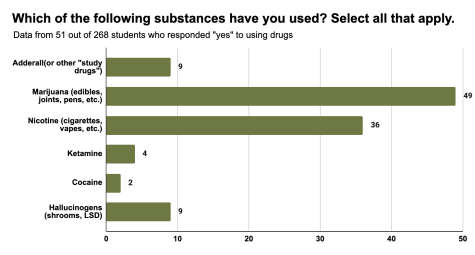 According to Dr. Steven Sussman, the Professor of Population and Public Health Sciences at the University of Southern California (USC), easy access to drugs leads to addiction and dependence among teens. “A social climate that does not impede use can result in use continuing until a problem develops,” Sussman said. Lowell students who have attempted to obtain drugs on campus have found that the process can be surprisingly easy, which can fuel further drug abuse. “The access [to drugs] is definitely there. It’s easy to fall into it,” Veronica said. “I think once you know one person, you get introduced to others and realize how many kids at Lowell actually do drugs.”
According to Dr. Steven Sussman, the Professor of Population and Public Health Sciences at the University of Southern California (USC), easy access to drugs leads to addiction and dependence among teens. “A social climate that does not impede use can result in use continuing until a problem develops,” Sussman said. Lowell students who have attempted to obtain drugs on campus have found that the process can be surprisingly easy, which can fuel further drug abuse. “The access [to drugs] is definitely there. It’s easy to fall into it,” Veronica said. “I think once you know one person, you get introduced to others and realize how many kids at Lowell actually do drugs.”
Jamie, a senior under a pseudonym, believes that obtaining illicit drugs depends on who you know. “If you know the right people, and you have the right friends, then it can be really easy, like it was for me.” she said. When Jamie was interested in buying cocaine, she easily found a seller through mutual friends. “We made a plan, and she just gave it to me in the bathroom,” she said.
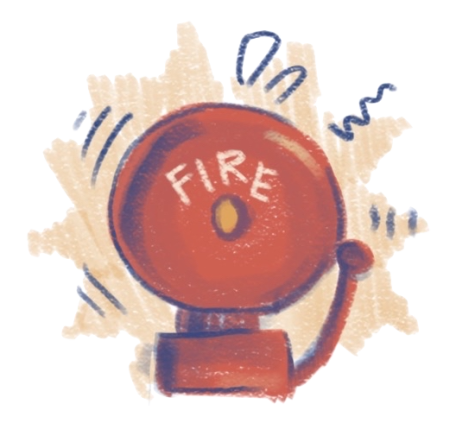 Some students believe that drug use at Lowell has greatly increased recently, which falls in line with a greater nationwide trend. With COVID-19 slowly subsiding, schools opening back up, and people interacting more, there has been a bigger opportunity for students to access drugs. According to Monitoring the Future, a national study conducted yearly, nearly all forms of illicit drugs have gone up in use among high schoolers from 2021-2022. According to Ryan, this issue has gotten blatantly worse over the past year on campus. “So many more students, including younger grades, are just vaping in bathrooms and it’s becoming more obvious,” he said. According to Alcantar, Lowell has also seen “an uptick in our fire alarms triggered,” which has been attributed to vaping in the restrooms.
Some students believe that drug use at Lowell has greatly increased recently, which falls in line with a greater nationwide trend. With COVID-19 slowly subsiding, schools opening back up, and people interacting more, there has been a bigger opportunity for students to access drugs. According to Monitoring the Future, a national study conducted yearly, nearly all forms of illicit drugs have gone up in use among high schoolers from 2021-2022. According to Ryan, this issue has gotten blatantly worse over the past year on campus. “So many more students, including younger grades, are just vaping in bathrooms and it’s becoming more obvious,” he said. According to Alcantar, Lowell has also seen “an uptick in our fire alarms triggered,” which has been attributed to vaping in the restrooms.
The consequences of substance abuse can be especially detrimental to teens, who don’t have fully developed brains and often experience harmful side effects. Academically, the cognitive and behavioral changes caused by drug abuse can frequently lead to challenges in doing schoolwork, while more time spent using drugs can lead to students skipping classes, according to the Office of Juvenile Justice and Delinquency Prevention. Many mental health problems may also arise because of drug use. According to the Bureau of Justice Statistics, drug-abusing youth are at a higher risk of having mental health problems, such as personality disorders, depression, and suicide. Drug abuse can also affect a person’s physical health, weakening the immune system and increasing the risk of many illnesses and infections, according to Gateway Foundation. After taking Adderall to help him focus on homework, Ryan experienced side effects such as extreme nausea and dizziness that reminded him of the dangers of taking illicit substances. “It’s an illegal drug that I took for f*cking algebra homework,” he said. “It’s not worth it.”
Substance use on campus has started to affect the greater student population as administration attempts to mitigate the issue by shutting down restrooms. “Fire alarms have been going off in specific bathrooms,” Alcantar said. “We’re trying to make sure that students aren’t using them for things that are inappropriate, like vaping or smoking, and stuff like that, which is not the purpose of the bathroom.” As a result of these shutdowns, survey respondents reported waiting in long lines, traveling to different floors and school buildings, and not being able to use the bathroom at all. One respondent was frustrated when trying to find smoke-free bathrooms. “I have to go around school, trying to find an open bathroom that doesn’t smell like drugs,” they said. Another reported difficulties in trying to use gender-neutral bathrooms. “As someone who identifies as non-cisgender, it’s frustrating when I need to use the gender-neutral bathroom but other people are using it for drugs,” they said.
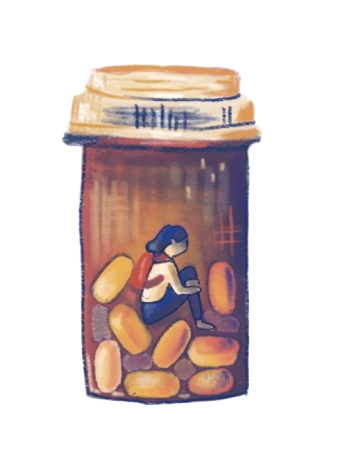 To combat the issue, Lowell’s administration has long followed San Francisco Unified School District’s (SFUSD) policies when addressing students caught using substances. According to Alcantar, SFUSD policies and guidelines use a “progressive discipline model,” which involves a more supportive approach to drugs. “We try to start with bringing the student into thinking about why they’re doing it, bringing the family on board, and making sure that we’re trying to support the kid to make better choices,” Alcantar said. “We refer the students to Brief Intervention Services, which is where they talk about what kind of substance abuse they’ve been doing and why.” If a student is caught using substances on campus after that, they risk being subject to harsher disciplinary measures, including suspensions and expulsions.
To combat the issue, Lowell’s administration has long followed San Francisco Unified School District’s (SFUSD) policies when addressing students caught using substances. According to Alcantar, SFUSD policies and guidelines use a “progressive discipline model,” which involves a more supportive approach to drugs. “We try to start with bringing the student into thinking about why they’re doing it, bringing the family on board, and making sure that we’re trying to support the kid to make better choices,” Alcantar said. “We refer the students to Brief Intervention Services, which is where they talk about what kind of substance abuse they’ve been doing and why.” If a student is caught using substances on campus after that, they risk being subject to harsher disciplinary measures, including suspensions and expulsions.
The students interviewed for this story conveyed confusion about both the penalties for drug use on campus, as well as the help they can receive to stop using. Several sources just aren’t aware of the help that they can get at school for addiction, and expect punishments from administrators. Laura, who is currently struggling with a nicotine addiction, said that the consequences of reporting drug use to school staff is not accessible information. “It isn’t common knowledge,” Laura said. She also said that when her friend was caught vaping, their device was taken away and their parents were called. She believes that is punishment enough and doesn’t want to turn to school staff, in fear of their parents knowing.
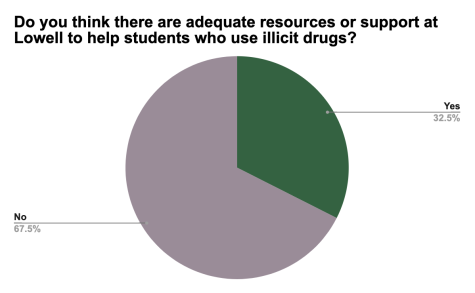 Although these policies exist, many students believe that there still aren’t enough available resources at Lowell. According to Veronica, she felt lost when considering reaching out for help. “We don’t have a nurse anymore, so I don’t really know who I would go to,” she said. Though Veronica considered her counselor, she ultimately decided that wasn’t a comfortable option either. “[My counselor] has a ton of kids to talk to and not having that connection makes it harder to go to him for personal things.” Sixty seven percent of survey respondents reported that they believed Lowell did not provide adequate resources or support to help students who use illicit drugs. Ryan believes that Lowell doesn’t do enough about drug use, and needs to be more vigilant in how they prevent students from “spiraling down the drug hole.” Laura, a senior, believes Lowell should take steps toward providing more resources. “I think it would be very beneficial to a lot of people if they had more educational services and help for people who are struggling with addiction,” she said.
Although these policies exist, many students believe that there still aren’t enough available resources at Lowell. According to Veronica, she felt lost when considering reaching out for help. “We don’t have a nurse anymore, so I don’t really know who I would go to,” she said. Though Veronica considered her counselor, she ultimately decided that wasn’t a comfortable option either. “[My counselor] has a ton of kids to talk to and not having that connection makes it harder to go to him for personal things.” Sixty seven percent of survey respondents reported that they believed Lowell did not provide adequate resources or support to help students who use illicit drugs. Ryan believes that Lowell doesn’t do enough about drug use, and needs to be more vigilant in how they prevent students from “spiraling down the drug hole.” Laura, a senior, believes Lowell should take steps toward providing more resources. “I think it would be very beneficial to a lot of people if they had more educational services and help for people who are struggling with addiction,” she said.
 Additionally, the fear of getting in trouble or facing disciplinary action at Lowell, along with what many believe is a punishment-oriented approach to drug use, prevents many students from reaching out for support despite the need for help. Dr. Sussman believes that implementing proven programs that focus on students’ wellbeing and rehabilitation can help, especially with nicotine addiction. “There are evidence-based programs for teen cessation from tobacco use, such as Project EX,” he said. Project EX, a school-based program for teenagers, “aims to teach self-control, anger management, mood management, and goal setting techniques, and it provides self-esteem enhancement.”
Additionally, the fear of getting in trouble or facing disciplinary action at Lowell, along with what many believe is a punishment-oriented approach to drug use, prevents many students from reaching out for support despite the need for help. Dr. Sussman believes that implementing proven programs that focus on students’ wellbeing and rehabilitation can help, especially with nicotine addiction. “There are evidence-based programs for teen cessation from tobacco use, such as Project EX,” he said. Project EX, a school-based program for teenagers, “aims to teach self-control, anger management, mood management, and goal setting techniques, and it provides self-esteem enhancement.”
At present, Lowell is missing two key elements for providing such wellbeing support for its students: a nurse and a Wellness coordinator. The two employees staffing these positions quit this past fall, and, as of yet, no new hires have been made. According to principal Mike Jones, there are currently no candidates for these positions and he does not anticipate there being any for the rest of this semester. At a recent faculty meeting, he explained that problems with SFUSD’s EMPowerSF payment system has driven away potential candidates. “Folks don’t want to work in the district at this point,” he said.
Without a nurse or a fully staffed Wellness center, much less a dedicated drug program such as a Project EX, students struggle to receive the help they need. In some cases, they don’t know who to turn to, or if they should reach out to adults on campus. “I don’t even know if you get in trouble for going to a counselor and saying you’re addicted, but we need to get rid of that idea because some people do want help,” Ryan said. “They’re just afraid of getting in trouble if they do reach out.” For Veronica, this fear has kept her from confiding in adults at Lowell as well. “Even when we had a nurse, I was scared to go to her because I thought I would get in trouble,” she said. Laura also believes Lowell’s approach to the issue deters students from seeking help. “Addiction is not a choice, it’s a disease,” she said. “I think they punish us instead of offering support, which is really problematic.”

Isadore Diamond is a senior and a reporter on The Lowell. He is on the Cross Country and Track teams, and enjoys playing most sports, unless they are very competitive. In his free time he likes to play video games and practice piano.

Saw is a senior who has been on staff since Spring 2021. Outside of her busy academic life, Saw likes to volunteer at events, explore the city with friends, watch the latest MARVEL movie, and run on Lowell's Cross Country team.

Kylie is currently a senior at Lowell. When they aren't in the Journ Room, you can find them enjoying a nice medium cup of an espresso chai latte with light ice and short pull, or watching terrible movies.





